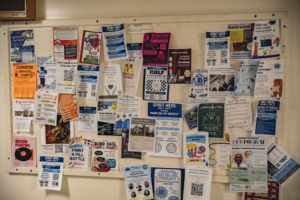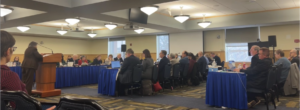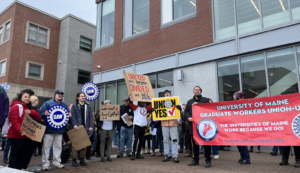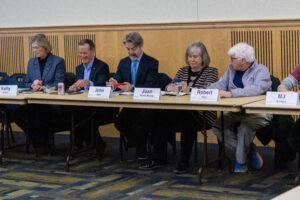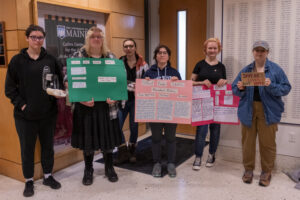It’s read aloud at the beginning of most campus-wide events, breezed over in syllabi and included — but not usually seen — in some email signatures: the University of Maine land acknowledgement.
The idea of it seems well intentioned: a sort of semi-apology for the blatant thievery of Indigenous land from those who call it home. However, you can only hear it monotonously delivered in a crowd of whispering students so many times before it loses its effect. An attempt to recognize those who have had their rights stripped so cruelly blurs so easily into the rest of a lecture. If a statement is not heard, received and valued, it has no reason for being said, and that directly disrespects the people whose land we learn on.
In addition, UMaine’s bilingual Penobscot signage networks seem a heartwarming bandaid on an ugly, gaping wound of a problem. Most buildings on campus now feature signage in Penobscot language that describes them in a tongue once spoken on this very soil. The idea is wholesome at heart: to evoke imagery of what once lived here and remind passersby that this was someone else’s home first. While a beautiful concept, I’ve heard many peers say they feel the signage falls flat when compared to the destruction and horror it is supposed to help remedy.
It needs to be said that I, a white woman, am absolutely not the best person to speak on Native rights or the way they are handled at my college campus. I do still feel outrage on the behalf of those fighting battles they never deserved, and this case is one of them. I’ve taken Native American Studies courses at UMaine, and they’re nothing short of enlightening; they deserve to be implemented into every major.
Why this history is not required in classrooms is a question that shouldn’t even have to be asked. As more and more states heavily restrict and whitewash — literally — their racial history curricula, the fight to include all POC in the history that is rightfully theirs is ongoing. There is no reason that UMaine doesn’t require NAS courses as a General Education requirement. While Native-focused courses fill Cultural Diversity and International Perspectives requirements, students could take other courses to fill that requirement.
Mandating courses on Native history could help to repair important gaps in historical knowledge that have been exiled from current curricula in order to make American history seem palatable. If we do not learn from our history we can never grow, and how do we expect students to grow if they are not taught history?
Not requiring courses about Indigenous people and their history is a refusal to uphold the carefully crafted relationship this campus is attempting to rebuild with those who first inhabited it. We are walking the ground of the “homeland of the Penobscot nation,” as stated in the acknowledgement, and Native American studies need to be fully appreciated and ingrained into the education of UMaine students.



